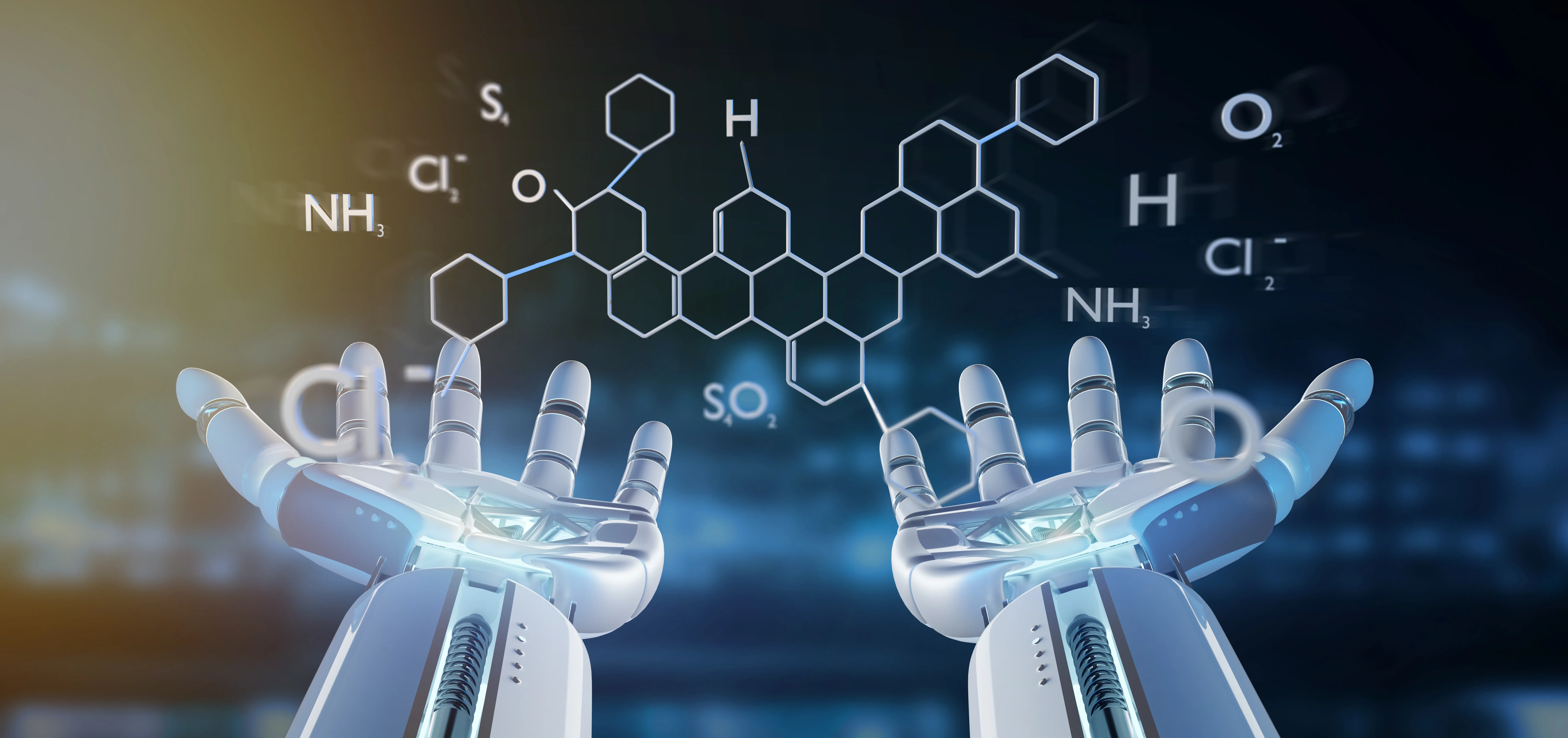
Blog
18th August 2020
Artificial Intelligence (AI) is a branch of computer science that deals with designing computers to perform activities that require the cognitive abilities of human beings, such as problem-solving, decision making, learning, and critical thinking. Our brain processes thoughts through a system of neural networks and the same can be replicated in AI via an Artificial neural network (ANN). Many companies such as Google, Amazon, IBM, Netflix, and Tesla among others are making massive investments in AI.
AI is now being integrated into almost all industries. The chemical industry has been adopting and integrating AI in its operations over the last decade. Using machine learning (ML) in this digital era helps the chemical business in three ways: 1) Optimize business operations, 2) Strategies to improve the value chain, 3) Developing existing business models to add value to the end-user. A typical Supply chain of the chemical industry consists of raw materials, suppliers, manufacturers, distribution centers, customers and the return system. These six branches consist of several sub-branches, and this network is rather complicated. Supply chain management is a critical parameter for a company’s profitability. Nowadays, data analytics has been integrated with the supply chain, and this field is also called Supply chain analytics. Various mathematical models and data analysis will help manage the supply chain in raw material procurement, Inventory management, customer database management, and to analyze market trends based on which the production capacities can be changed. AI can detect patterns that are generally quite hard for human beings to detect. So, effective use of AI enables optimization in all stages of the value chain and gives companies a competitive advantage.
The production plants run by the chemical manufacturers are prone to accidents and failures due to various reasons, such as the mishandling of harmful chemicals and gas leaks. Using deep learning algorithms and anomaly detection systems, the plant employees can be warned, and safety precautions can be taken as per protocol.
For chemical producers, to optimize production lines, they need to address different parameters, such as the formation of undesired side products, losses due to impurities, on an ongoing basis. Data can serve as a basis for reliable and precise models in predictive manufacturing. We can use data from the time when production processes are at the design stage to the installation and finally to operation and maintenance. Factories that manufacture products are linked to a digital twin that is continuously using the same data flows to simulate operations to optimize processes and material and energy flows.
ML opens the new space for chemicals via 3D printing, which is popularly known as additive-manufacturing. Polymers and chemicals used in 3D printing are increasing every year at 30% and creating a USD 2.5 billion market for chemical manufacturers.
BASF has shown interest in AI & recently announced its membership in Systems That Learn (STL), a research initiative that is part of the MIT Computer Science and Artificial Intelligence Laboratory (CSAIL) at a North American Centre for Research on Advanced Materials (NORA) conference. The Dow Chemical Company partnered with ML and computing company 1Qbit based in Canada to develop quantum computing tools to be used in Dow Chemical in their material science and chemical research. The Royal Dutch Shell developed a virtual assistant (VA) that speaks multiple languages and has since operated in 151 countries. They can answer questions like where to buy lubricants, what pack sizes are available, and give them information regarding the technical properties of the product.
But, apart from advantages from AI, few challenges must be taken into accounts, such as technological mistrust and the displacement of human workers. Companies should ensure that the impact of AI is a positive one by proactively tackling all the constraints. Though AI may result in the loss of a few jobs, on the contrary, it will open doors for many opportunities to handle the AI systems in the chemicals industry.